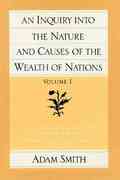Question
Australian and New Zealand both produce scones and sweaters. Suppose that an Australian worker can produce 50 scones per hour or 1 sweater per hour.
Australian and New Zealand both produce scones and sweaters. Suppose that an Australian worker can produce 50 scones per hour or 1 sweater per hour. Suppose that a New Zealand worker can produce 40 scones per hour or 2 sweaters per hour.
State your answer in the space provided.
a) In the context of international trade, briefly explain the difference between comparative advantage and absolute advantage.
b)In the context of the above scenario of Australia and New Zealand, explain:
oWhich country has the absolute advantage in the production of each good?
Which country has the comparative advantage?
c) If Australia and New Zealand decide to trade, which commodity will Australia trade to New Zealand? Explain your answer.
d )If a New Zealand worker could produce only 1 sweater per hour:
oWould New Zealand still gain from trade? Explain your answer.
Would Australia still gain from trade? Explain your answer.
e) Economists typically oppose policies that restricts trade among nations. Briefly explain any two arguments for international trade.
Step by Step Solution
There are 3 Steps involved in it
Step: 1

Get Instant Access to Expert-Tailored Solutions
See step-by-step solutions with expert insights and AI powered tools for academic success
Step: 2

Step: 3

Ace Your Homework with AI
Get the answers you need in no time with our AI-driven, step-by-step assistance
Get Started


